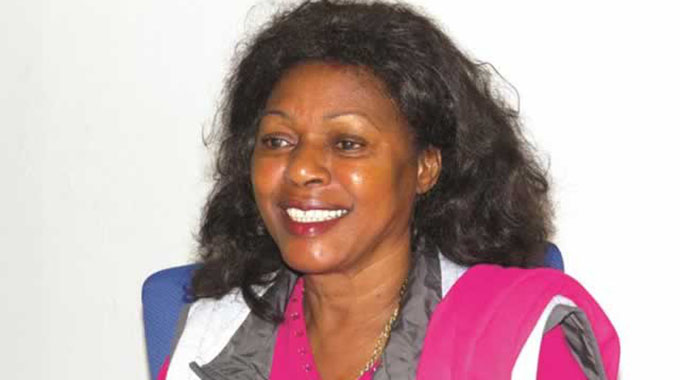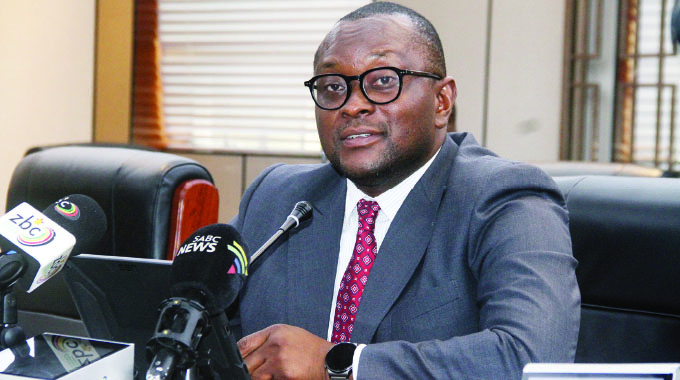Financial access, literacy a game-changer for women

Ruth Butaumocho African Agenda
As a young female entrepreneur, one of Zimbabwe’s well-established businesswomen, Ms Susan Peters found herself facing a dilemma too many women during her time were facing — a choice between going back to work or staying home with kids.
Disconsolate by the dilemma, Ms Peters ultimately decided not to settle for the two. Instead, she opted to create an opportunity to change the norm, not just for herself, but for others in a similar situation.
Such a bold move borne out of despair and determination saw her venturing into business by starting a salon, as a stepping stone to something bigger.
However, such a business venture, then into the early 1980s did not fit within the confines of traditional lenders’ approval criteria and Ms Peter could not get funding when she needed it.
Being a woman and with no collateral security did not make it any better.
Without access to financial literacy, mentors and a formal business course, one had to possess a high level of business acumen to plod in such uncharted terrain.
The 80s were characterised by a lot of economic activities in the informal as both men and women explored different ventures in hope of a better life.
It was during that time that thousands of women crossed the borders in neighbouring countries in search of business and trading opportunities, since movement was now easier.
With no financial backup from any financial institution except one’s own savings and acts of benevolence from friends and relatives, these business ventures had to be well-calculated if they were to be sustainable.
Four decades later, women have since diversified into other entrepreneurial ventures, although cross border trading remains a viable option for those with limited opportunities.
Reflecting on the era, Ms Peters says had there been an avalanche of micro-financing companies and financial literacy packages that exist today, Zimbabwe could have witnessed a boon in viable female-owned businesses then.
Today Zimbabwe now boasts of several financial institutions, where women can borrow money from, though under various but amenable conditions.
Under the Second Republic led by President Mnangagwa, the Zimbabwe Women’s Microfinance Bank has empowered thousands of women who, for long could not access funding for various life-changing projects.
The Ministry of Women Affairs, Community, Small and Medium Enterprises Development partnered the United Nations, Ministry of Finance and Economic Development and the Reserve Bank of Zimbabwe (RBZ) to open the Zimbabwe Women’s Microfinance Bank (ZWMB) to economically and socially empower women in their broad totality.
The bank which was officially launched by President Mnangagwa on June 25, 2018 has provided lasting solutions to challenges facing most women, especially those not formally employed.
Since its inception, the women’s bank has provided loans for over 150 000 projects predominantly fronted by women across the country, as it seeks to address existing financial gaps on the female populace.
Several other financial institutions now have packages tailored for women and youths to bolster their income-generating projects, an initiative that has resulted in a boon of entrepreneurial projects for hundreds of women.
The Second Republic has made concerted efforts to broaden the existing financial facilities in line with the 2030 Agenda for Sustainable Development, Sustainable Development Goal (SDG) Number 5, which speaks to “Achieving gender equality and empowering all women and girls”.
Only a few weeks ago, the Ministry of Women Affairs, Community, Small and Medium Enterprises Development made a call to companies, cooperatives, groups, female managed businesses and businesses involving women to apply for financial support in form of grants given to entrepreneurs.
Such initiatives are welcome developments and show the Government’s commitment to empower more women and address historical imbalances that have over the eyes impeded on their economic progression.
However, these financial packages would need to be matched with financial literacy among women from various classes.
Studies conducted actually show that lack of financial literacy is the major barrier for the majority of women who are running small to medium enterprises.
A global research done by QuickBooks late last year revealed that 74 percent of female entrepreneurs believe financial illiteracy is the biggest financial barrier when running a business.
A further 90 percent of female small business owners say their understanding of financial terms and skills impacts their ability to grow their business.
Though it is a global research, its implications are being felt across Africa and locally as several female-led projects are struggling to survive, although there may be potential for growth.
Given the significance of finance in any business, a woman’s long-term financial success may suffer greatly if they are not financially literate.
It can also create barriers to business growth and success.
Lack of financial literacy can lead to several issues, including a higher chance of overspending, over borrowing and failing to invest in growth opportunities.
This may also make it difficult for women to secure funding from investors or lenders because small business owners may struggle to prepare the financial statements and projections required.
With the strides that Zimbabwe has made in empowering women by availing an array of financial products, it is imperative to match the existing facilities by education female entrepreneurs on all financial aspects of business.
This can be done by offering free financial literacy courses right from the grassroots to well established business women. Those already in the know can also mentor other women through properly structured programmes across all provinces.
A mentor can provide support and reassurance, based on their own experience, and in highlighting the challenges, solutions can be found.
Going beyond even that, mentors can help give women in finance the confidence to believe: ‘It can be done, it is not a question of if, but when.
Building a close group of women that can rely on one another is a culture the country needs to promote at a national level. With that, together with mentoring, both formal and informal, the numbers of those having long successful businesses and entrepreneurial projects should increase.
Many women will benefit from a gender-equal finance function, there will be a significant increase in the successful female-owned businesses.
Feedback: [email protected]








Comments